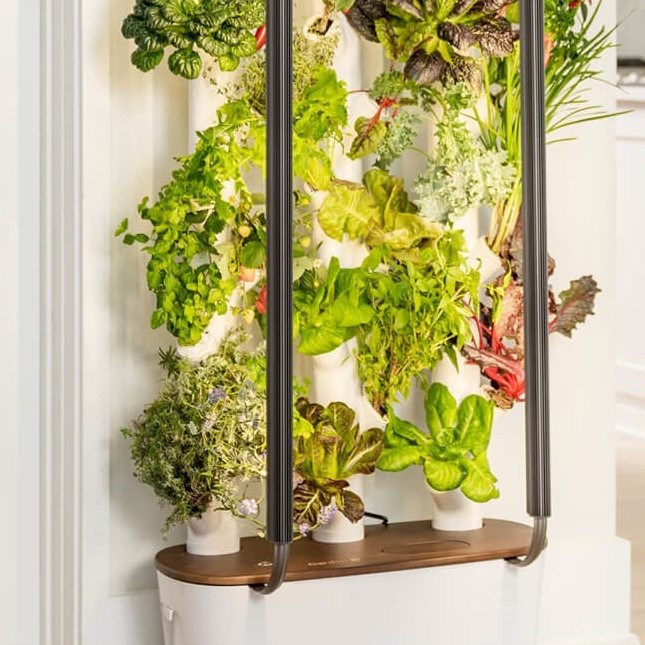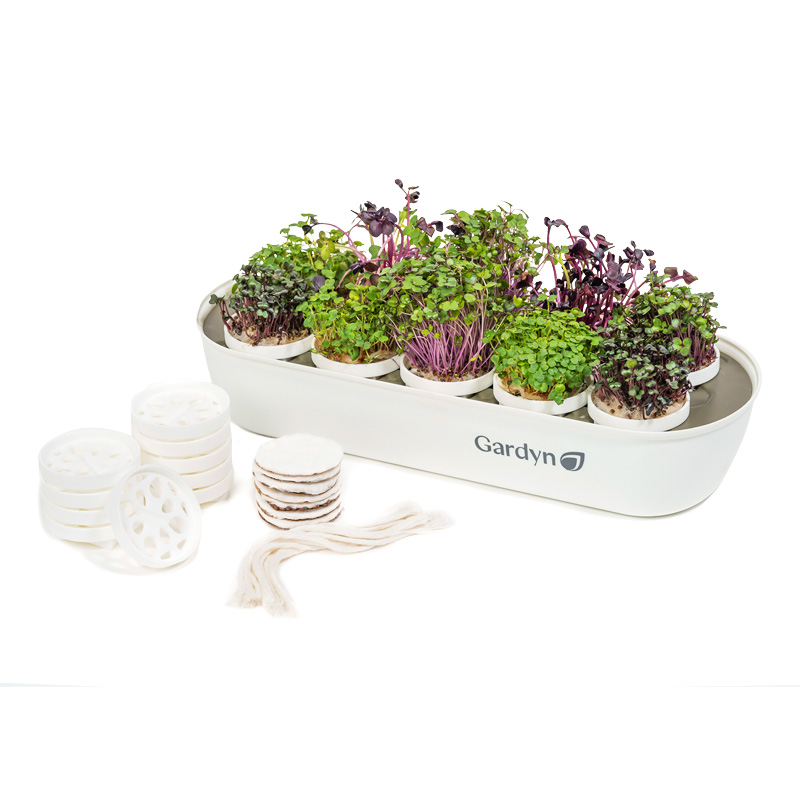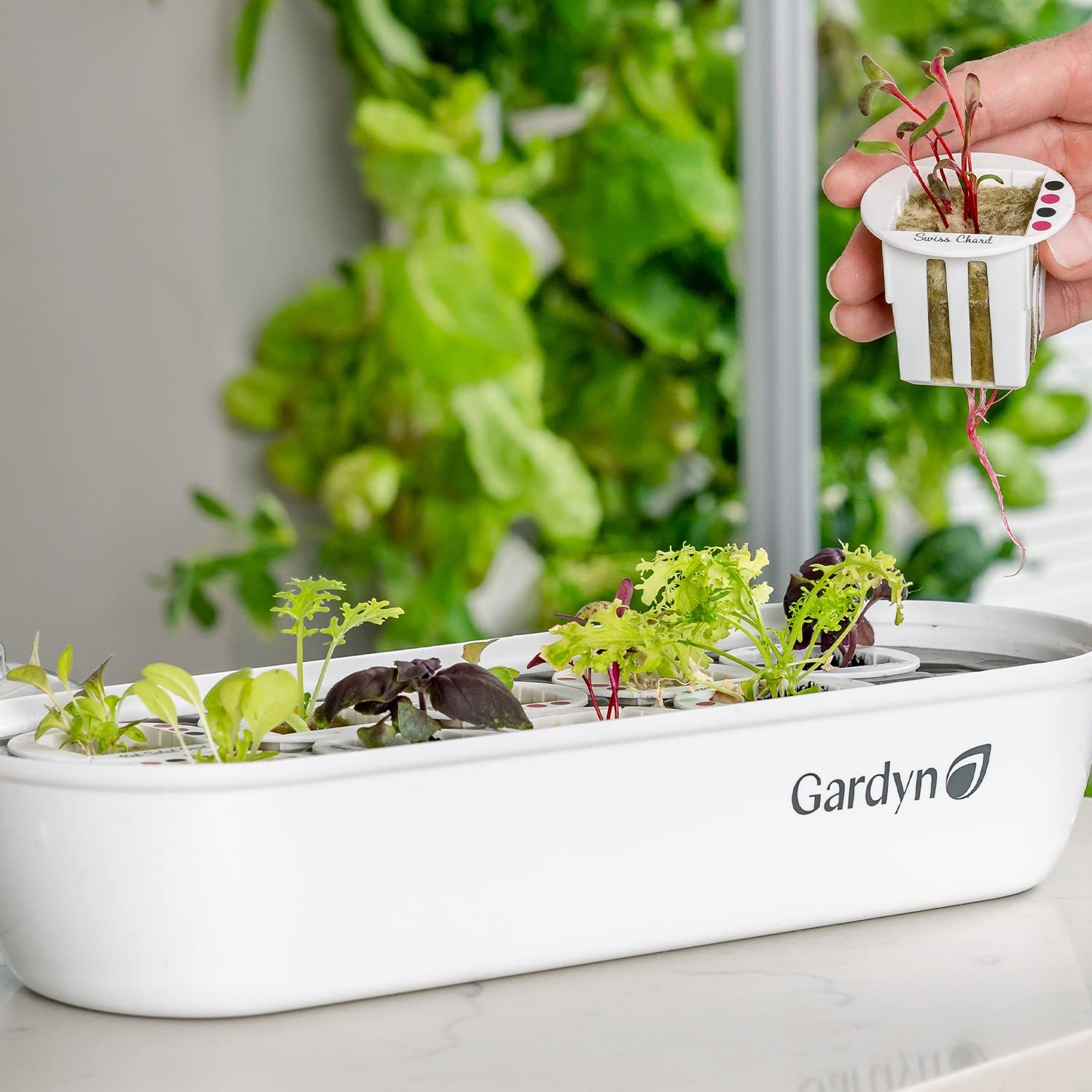The future of indoor gardening – experts reveal trends and health benefits of the hydroponic revolution
Hydroponic growing is the future of indoor gardening and is changing how we grow and consume food in cities
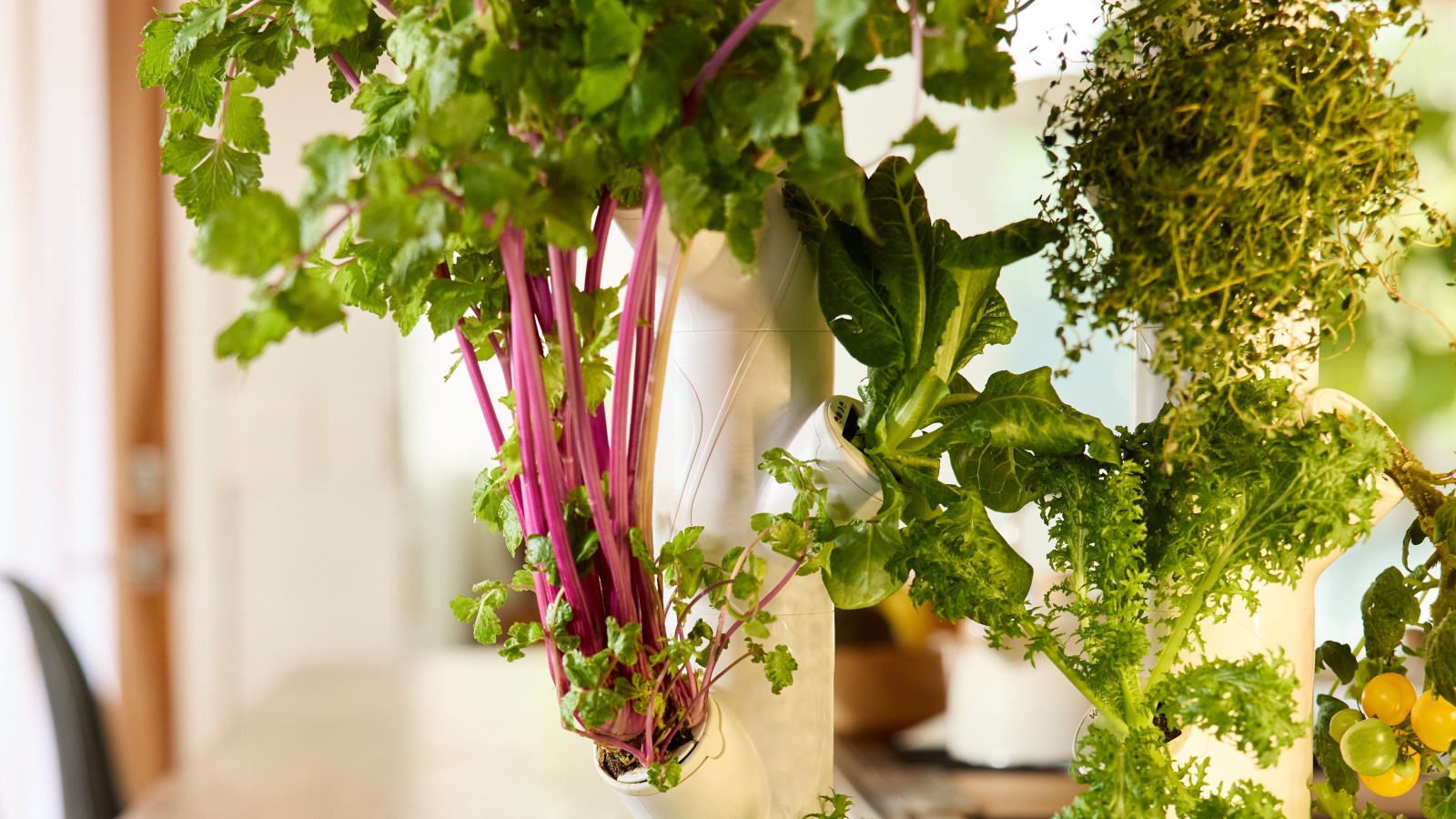

Hydroponic growing systems are shaping the future of indoor gardening. The potential of this innovative method of growing plants without soil is thrilling, enabling those who reside in rental units or those who do not have access to outside space to grow delicious crops.
Hydroponic growing looks set to dominate future indoor garden ideas in cities across the globe. Indeed, many city dwellers are now considering hydroponic gardening for sustainability reasons using indoor growing systems. Hydroponic growing is a sustainable approach to growing, eliminating the need for pesticides or fertilizers by growing in a controlled indoor environment.
What's more, crops can be consumed minutes after picking. You will not get fresher salads, veg or herbs than that! Here, experts share the trends and health benefits of hydroponic growing and the future of indoor gardening.
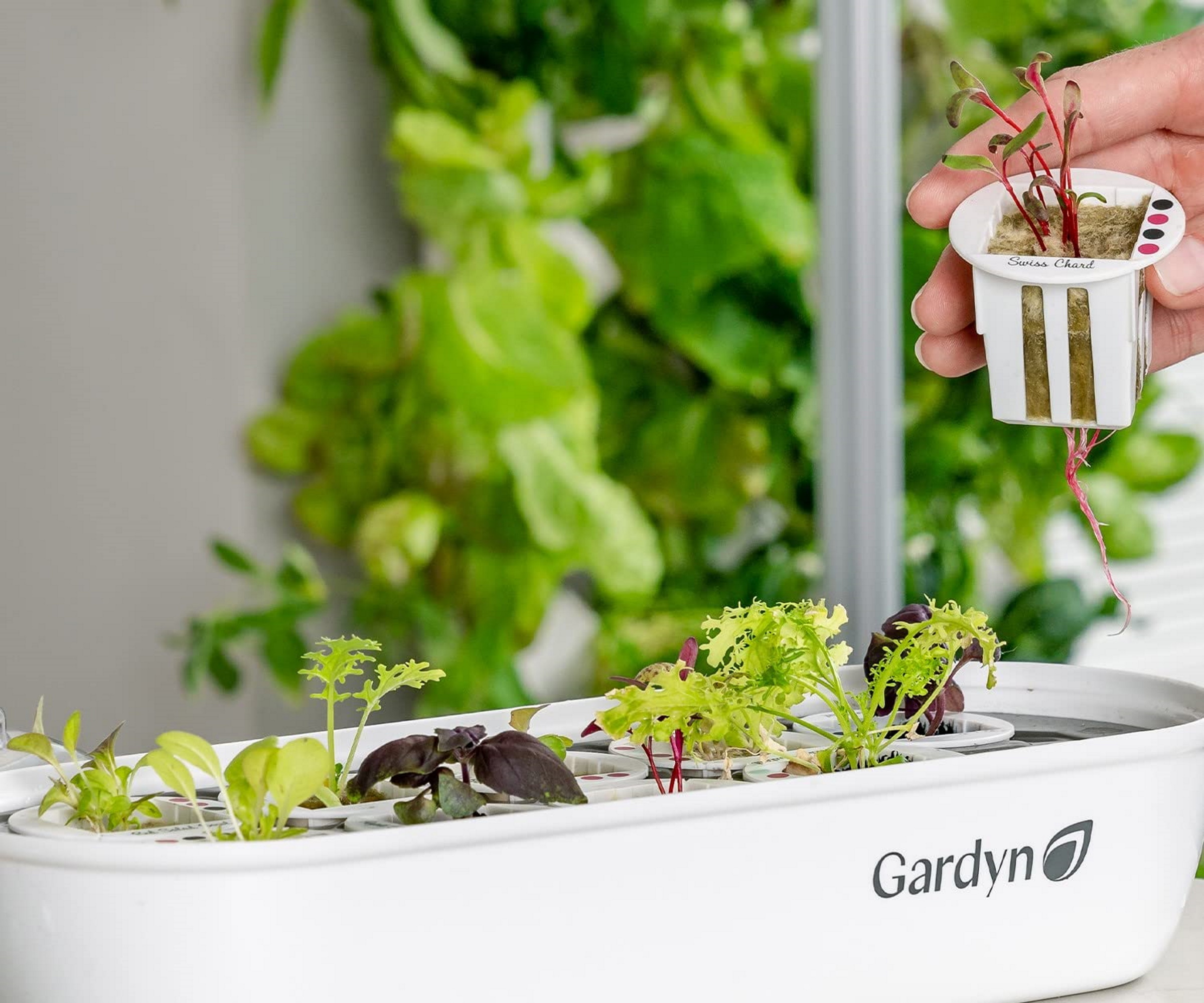
The future of indoor gardening: hydroponic growing
Hydroponic growing systems are transforming our ability to grow crops in cities. While there are pros and cons to hydroponic gardening, growing plants without soil looks set to dominate the future of indoor gardening with many exciting health and well-being benefits.
Hydroponic growing systems are space-saving and smart
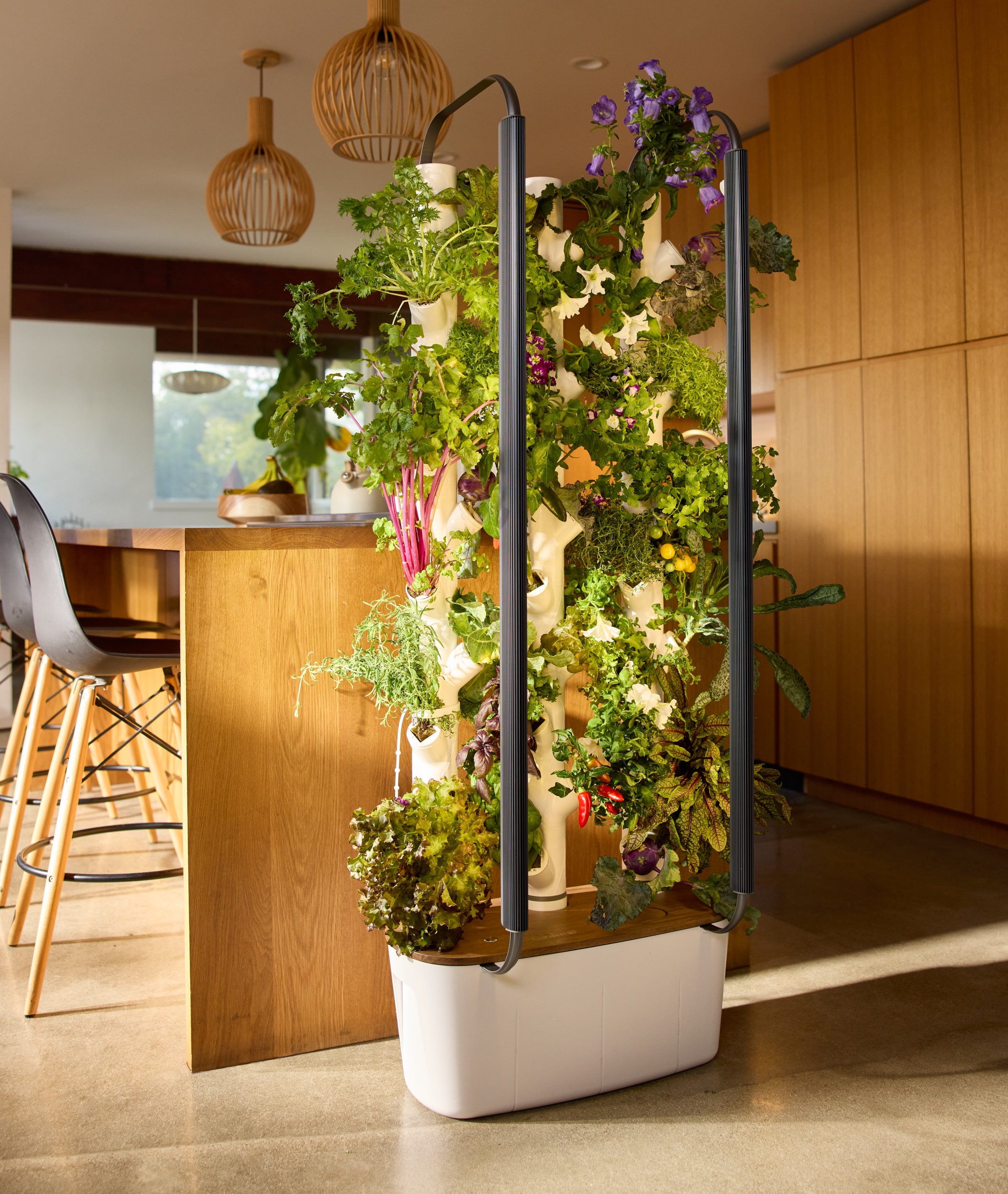
'The future of indoor gardening is expansive and absolutely thrilling,' says Lindsay Springer, plant expert and Head of Plants and Nutrition for Gardyn. 'Hydroponic growing is positioned to evolve the way we grow, enrich the biodiversity of our diets, instill health ownership, and strengthen the way we connect to nature.'
Gardyn's new home kit 4.0 is the latest model from Gardyn, with a clever and sleek design that we at Homes and Gardens love. As seen in the image above, this hydroponic growing system is much like a vertical garden, maximizing growing space in the smallest apartments and homes.
'Gardyn growing systems are designed with these goals in mind,' Lindsay says, 'elevating human health and wellness by strengthening our connection to nature in busy and gray cities.'
Design expertise in your inbox – from inspiring decorating ideas and beautiful celebrity homes to practical gardening advice and shopping round-ups.
'Gardyn models are perfectly engineered to turn small spaces, even just a 2 square foot plot, into big and beautiful harvests,' Lindsay says. Indeed, the unique and clever vertical design will enhance your kitchen aesthetic, adding greenery where it is most needed.
Hydroponic growing systems do not require much room making them an ideal option for urban spaces with little or no yard. 'Our design allows you to grow 30 plants in tight spaces using state-of-the-art LEDs, full automation, all indoors,' Lindsay adds.
'And it’s certainly not just for savvy plant lovers, anybody can Gardyn! Gardyn comes equipped with an AI growing assistant, Kelby, who keeps everything in check to ensure a successful growing journey.'

Lindsay is a plant expert and Head of Plants and Nutrition for Gardyn. With a focus on reintroducing nature in urban habitats, Gardyn is helping to reimagine the future of food, and in the process making our cities more sustainable and autonomous.
Hydroponic gardening can improve our health
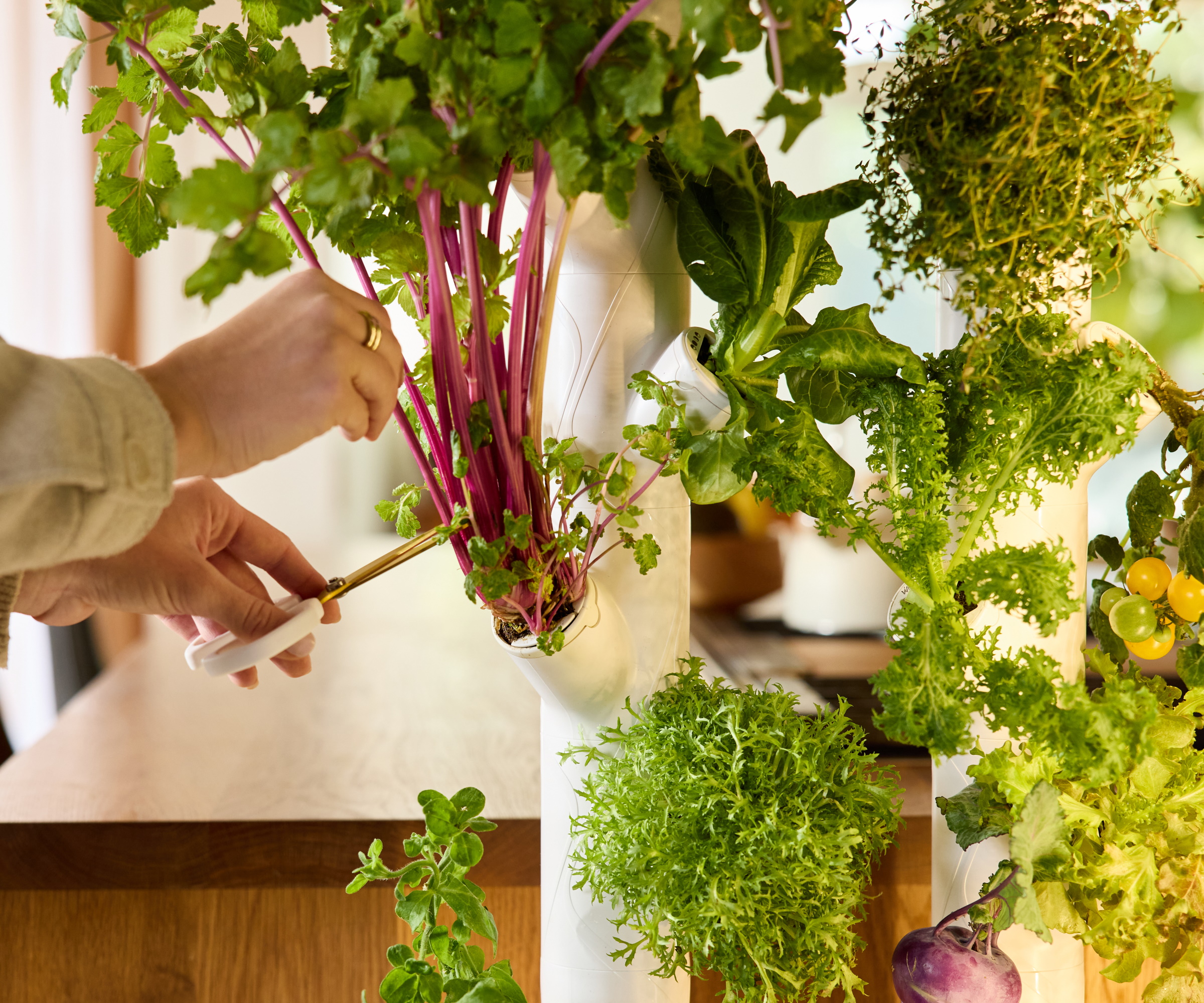
Many people do not have access to outside space in urban areas and cannot grow any crops. Store-bought salads and vegetables have often been treated with pesticides and fertilizers, picked, and then refrigerated before being transported thousands of kilometers.
By growing crops through hydroponics, everyone can enjoy fresh, organic food. 'In this way, I think indoor hydroponic growing has a huge potential to unlock new levels of human health and health ownership,' Lindsay says.
'Published studies show that a plant-rich, highly biodiverse diet is linked to a healthy gut microbiome, leading to better overall health,' Lindsay adds. 'As research continues to show the importance of health and wellness, it is clear that the hydroponic growing has an immense value and potential.'
'Right now we’re just in the early phase of what people understand about the benefits of indoor gardening,' Lindsay says. 'There is so much opportunity to discover new flavors, textures and colors of edible plants, and this is what Gardyn is passionate about.'
And, it is not just good for your gut to eat more homegrown crops, but it is good for overall well-being. Connecting with nature and filling your home with greenery can only be a good thing, and is more important now than ever.
'Moments of discovery, and sharing those moments, is really what brings us closer to nature and the ones around us,' Lindsay says. 'I’ll never forget the look on my daughter’s face when a dinner plate-sized hibiscus flower bloomed on our Gardyn growing system, and then I showed her how to make tea from it. She was amazed by the flower and proud of her delicious tea... we shared a special connection that day.'
New and exciting crops can be grown hydroponically
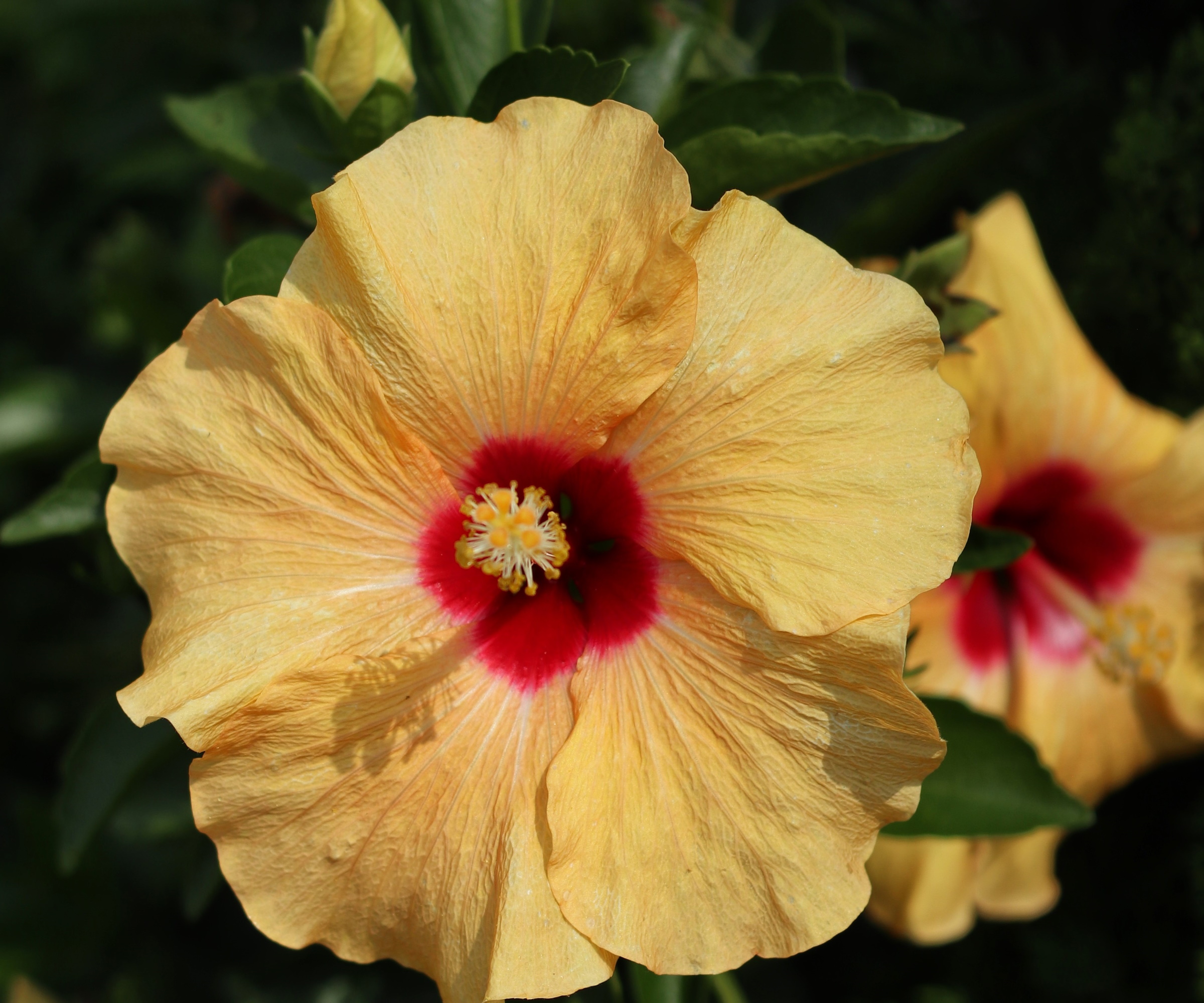
Hydroponic growing systems can grow a great number of delicious and nutritious crops. Many kitchen staples, such as lettuce, spinach and herbs can be easily and quickly grown without soil.
In addition, many fruiting crops, such as peppers and strawberries, can be successively grown hydroponically, as well as edible flowers, such as nasturtiums and hibiscus.
'As the Head of Plant Health and Nutrition at Gardyn, I work with my team to curate a vast biodiversity of plants for people to discover and enjoy,' Lindsay says. 'This entails delivering not only the best of what people are used to seeing in their grocery store, but varieties that are unique for their flavor, nutrition, beauty, or medicinal values that people just don’t have access to through traditional supply chains.'
There are over 100 crop varieties to choose from in the Gardyn plant portfolio that will flourish in a hydroponic growing system. 'Lettuces grow quickly, and you can start harvesting from your plants in just 6 weeks,' Lindsay says. 'Beyond lettuce, if you’re looking to up your salad game to the next level, Gardyn offers varieties like watercress, Bulls Blood beet greens, mustard greens, 2 colors of tatsoi, arugula, swiss chard and so much more.'
'When it comes to fruiting crops you can grow a plethora of tomatoes, different peppers, cucumbers, even mini pumpkins,' Lindsay adds. 'Our flower portfolio has also really bloomed over the past year, and Gardyn now offers a huge selection including nasturtiums, sunflowers, petunias and chamomile.'
Shop for hydroponic gardening
FAQs
Can I grow microgreens and sprouts in a hydroponic growing system?
Yes, microgreens and sprouts can be easily grown with a hydroponic growing system, using something like this microgreen growing system from Gardyn. Growing microgreens and sprouts is a great idea for those new to the world of hydroponics, harvesting your very own microgreens in as few as 7 days.
Hydroponic growing is an exciting and innovative approach to cultivating crops in urban areas. Enabling fast growth and year-round production, hydroponic growing is the future of indoor gardening.
As Lindsay says, 'what you grow is your personal selection, your personal work of art, your personalized nutrition package at arm’s reach, 24/7. Growing hydroponically at home is your very own door to nature.'
For those new to hydroponics, why not learn how to grow alfalfa sprouts, for a speedy and delicious harvest on your kitchen counter?

Thomas is a Content Editor within the Gardens Team at Homes and Gardens. He has worked as a professional gardener for both public spaces and private estates, specializing in productive gardening, growing food and flowers. Trained in Horticulture at the Garden Museum, he has written on gardening and garden history for various publications, including The English Garden, Gardens Illustrated, Hortus, The London Gardener and Bloom. He has co-authored a Lonely Planet travel book, The Tree Atlas, due out in 2024.
-
 3 Outdated Furniture Trends That You Might Be Surprised to Find on the 'Out' List in 2026
3 Outdated Furniture Trends That You Might Be Surprised to Find on the 'Out' List in 2026Designers say these three furniture style have officially had their moment
-
 7 Winter-Blooming Plants Thriving at the New York Botanical Garden in February – and You Can Grow Them in Your Backyard, Too
7 Winter-Blooming Plants Thriving at the New York Botanical Garden in February – and You Can Grow Them in Your Backyard, TooHow to get the best results from these winter-blooming stars
